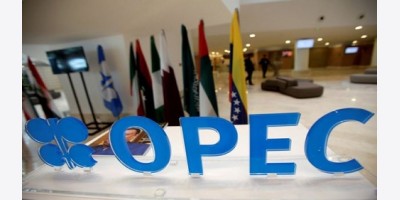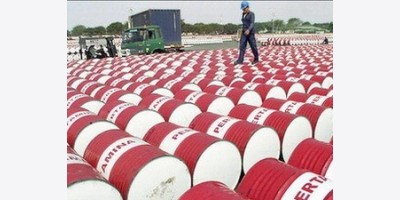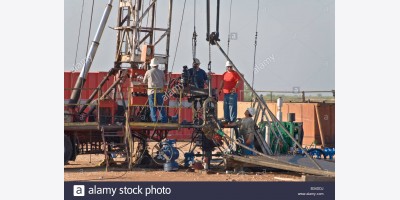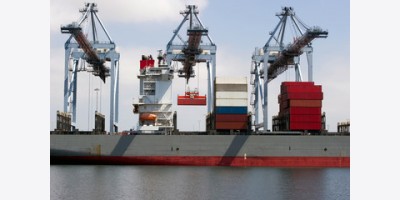As the selloff in global markets converge with growth concerns to drive down oil prices, analysts are weighing the odds that OPEC could be forced into a production cut.
In the middle of mounting speculation that major oil producing countries could cut output to put a floor under falling prices, crude tumbled to fresh six and half year lows on Monday. The moves followed last week's losses that drove U.S. light crude below the $40 mark on Friday, with the international Brent contract following a similar path downward.
The next scheduled meeting for OPEC is not until December 4th 2015. Yet with oil getting walloped daily, some think it could come much sooner—and that the oil cartel may be forced to send a message to stanch the bloodbath in crude markets.
On Sunday, Iran's oil minister, Bijan Zanganeh said an emergency OPEC meeting could be "effective" at stabilizing the price of oil, according to Iran's news agency, Shana. The comment may have exposed underlying divisions among OPEC, as other members have thus far resisted the temptation to make any overt moves to tame oil.
The oil ministers of Qatar, Saudi Arabia and the United Arab Emirates attend the opening session of the Arab Energy Conference in Abu Dhabi.
On August 10, two OPEC delegates said there were no plans for an emergency meeting, despite Algeria expressing a desire to, according to a Reuters report. However, could OPEC be persuaded to budge now?
According to some, a growing consensus is that it may come down to one producer: Saudi Arabia.
Neil Atkinson, head of analysis at Lloyd's List Intelligence, told CNBC that oil prices may have further to fall given the abundance of supply over increasingly questionable global demand. However, despite no signs of this trend going away soon, Atkinson doesn't expect a coordinated cut by OPEC.
"If there were to be an OPEC meeting, it could only be with the agreement of Saudi Arabia," Atkinson said. "That would represent an extraordinary reversal—a screeching handbrake turn if you like —as far as their policy is concerned."
"Although, (OPEC) have said consistently that were there to be a wider agreement on oil production incorporating leading non-OPEC producers as well as OPEC countries, they might be willingly to talk about it, in other words, 'sharing the pain'," he added.
However, a lack of "central authority" in places like the U.S. to determine national oil production, is where any hope of an emergency meeting is halted, Atkinson said. "Without the U.S. being involved in the managed reduction of production, it's difficult to see the Saudi's agreeing to anything that would lower production."
Amrita Sen, chief oil analyst at Energy Aspects, said that oil's current moves are more to do with broader macro concerns about China and Asian growth rather than oversupply.
"Yes OPEC is under a lot of pressure but I don't see Saudi Arabia agreeing to an emergency meeting. The lower the prices are now, the higher they will be in the future. It is maximum pain for producers now," Sen told CNBC in an email. Meanwhile, other analysts backing this up with future prices - a year out - pointing towards $47, suggesting markets are already pricing in a recovery.
Jasper Lawler, market analyst at CMC markets, said that Saudi Arabia was "definitely feeling the heat" from the oil drop, with additional pressure mounting after Fitch Ratings cut the country's outlook to "negative" from "stable". However, Lawler still believes Saudi Arabia won't budge.
"There could be an emergency meeting but I don't see them caving in with a production cut," Lawler said.
The oil cartel "would lose all credibility if they cut now and the policy probably wouldn't work in the long run because they aren't the swing producer anymore," Lawler stated. "By November, if oil prices are still at these levels then desperation may take over and lead to a cut, simply because they would feel they don't have a choice."
Kent Moors, executive chair of the Money Map Global Energy Symposium, told CNBC last week that only Saudi Arabia, Kuwait and United Arab Emirates "can afford to play this game." Together, the trio control 15 million barrels per day worth of production, the lion's share of OPEC output.
Still, Moors said the overall global crude market is going to "experience a major change" by October. By that time, small cash-poor U.S. oil producing companies are expected to feel a "whammy" from falling oil prices. Afterward, he expects the large multi-national producers to feel the effects as well.
If the differences between OPEC members, like Saudi Arabia and Venezuela, continue to get worse, Moors added that "more and more of the exports will be taking place outside of the cartel dimensions."
Reuters contributed to this report.
—By CNBC's Alexandra Gibbs, follow her on Twitter @AlexGibbsy.























